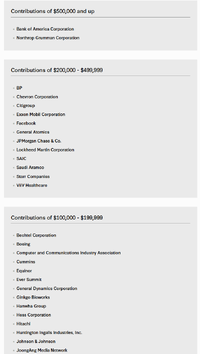The war in Ukraine is highlighting the inability of U.S. arms companies to replenish the military’s stocks
From today's WSJ.
WASHINGTON—The war in Ukraine has exposed
widespread problems in the American armaments industry that may hobble the U.S. military’s ability to fight a protracted war against China, according to a new study.
The U.S. has committed to sending Ukraine more than $27 billion in military equipment and supplies—everything from helmets to Humvees—since Russia’s invasion of the country last year. The infusion of arms is credited with helping the Ukrainian forces blunt Russian President
Vladimir Putin’s invasion in what has become the biggest land war in Europe since World War II.
But the protracted conflict has also exposed the
strategic peril facing the U.S. as weapons inventories fall to a low level and defense companies aren’t equipped to replenish them rapidly, according to the study, written by Seth Jones, a senior vice president at the Center for Strategic and International Studies, a Washington, D.C.-based think tank.
“The bottom line is the defense industrial base, in my judgment, is not prepared for the security environment that now exists,” said Mr. Jones in an interview. Industry now is operating in a manner “better suited to a peacetime environment,” he added.
Mr. Jones said the study, which reflected input from senior military, defense, congressional, industry and other government officials, showed how quickly the U.S. military would run out of munitions in a potential conflict with China in the Indo-Pacific.
“How do you effectively deter if you don’t have sufficient stockpiles of the kinds of munitions you’re going to need for a China-Taiwan Strait kind of scenario?” Mr. Jones said.
For more than the last 20 years, the U.S. fought insurgency warfare in Iraq, Afghanistan and elsewhere, a troop-intensive strategy, but the Ukraine conflict is a largely conventional war that relies more on heavy weaponry. A potential conflict with China in the Indo-Pacific would be different from the largely land war taking place in Ukraine, but would nonetheless need to draw deeply from U.S. arms stockpiles.
The problems with the industrial base, in part the result of outdated military contracting procedures and a sluggish bureaucracy, are now affecting the ability to create a credible deterrent in the Indo-Pacific region or face-off against China in a military conflict, according to the study’s finding.
“These shortfalls would make it extremely difficult for the United States to sustain a protracted conflict,” the report said. “They also highlight that the U.S. defense industrial base lacks adequate surge capacity for a major war.”
The rate of consumption of weaponry by the Ukrainians is quickly demonstrating the challenges the U.S. industrial base could face in an extended conflict over Taiwan. The number of Javelin shoulder-fired missiles sent to Ukraine since last August, for example, is equal to about seven years of production based on fiscal 2022 production rates, the study said.
The number of antiaircraft Stinger systems provided to Kyiv represent roughly the same number of systems exported abroad over the past 20 years, the study said. Meanwhile, the more than one million rounds of 155 mm ammunition sent to Ukraine by Washington has shrunk the U.S. military’s own supplies, which the study says are now considered low.
Inventories of the Javelin system, howitzer artillery and counter-artillery radars are also all considered low, according to the study.
Platforms, like the Harpoon coastal defense system, which is seen as a significant piece of Taiwan’s defense strategy, are considered medium, though current stocks might not be sufficient for wartime, the study said.
“The history of industrial mobilization suggests that it will take years for the defense industrial base to produce and deliver sufficient quantities of critical weapons systems and munitions and recapitalize stocks that have been used up,” the study said.
Military leaders have also expressed increasing frustration about the industrial base in recent months. Adm. Daryl Caudle, the head of U.S. Fleet Forces Command, called out the defense industry for the delayed supply of arms.
“I am not forgiving of the fact they’re not delivering the ordnance we need,” he said when asked about balancing the U.S. military’s readiness amid the U.S. shipments of billions of dollars of assistance to Ukraine.
“All this stuff about Covid this, parts, supply chain—I just don’t really care,” he said. “We’ve all got tough jobs.”
While the U.S. and its allies have been able to send billions of dollars of arms to Ukraine since last year’s invasion, Pentagon planners expect that Taiwan couldn’t be easily resupplied after the start of a conflict, since Chinese forces would likely blockade the island. There is already a
backlog of more than $19 billion of U.S. arms to Taiwan, based on sales approved since 2019.
The CSIS study took particular aim at the U.S. government, which has failed to adapt, remaining “risk averse, inefficient and sluggish” when it comes to the industrial base. And the government regulations that govern foreign military sales are outdated, according to the study, which said the
current process can take 18 to 24 months.
“In trying to prevent military technology from falling into the hands of adversaries, the United States has put in place a regulatory regime that is too sluggish to work with critical front-line countries,” the report said.
The study cited one example in which the decision to provide an unnamed weapon system to Taiwan using the U.S. foreign military sales process added two years to the delivery date, which meant it took four years to get to the island counting the two-year production time.
“This is a significant and problematic difference given the ongoing tensions in the Taiwan Strait,” the study said.
While the kind of weaponry U.S. officials believe Taiwan needs for a fight is in many cases different than what has been sent to Ukraine, the conflict in Europe has nonetheless exposed fissures within the industrial base and the government for contending with the problem, Mr. Jones said.
At the same time, the government has yet to adapt to what Mr. Jones and others believe is a wartime mentality that requires governmental agility and efficiency to enable the defense industry to produce more weapons.
China’s autocratic government, on the other hand, has invested heavily in recent years in military modernization.
A series of wargames CSIS conducted in recent months showed that the U.S., in the case of a conflict with China, could run out of some weaponry, including long-range, precision-guided munitions, in less than one week.
Mr. Jones recommends that the
U.S. reassess its total munition requirements, urging Congress to hold hearings on the matter. Chairman of the Joint Chiefs of Staff Army Gen. Mark Milley said in November that such an effort is already under way.
The study also suggests reassessing American requirements for replenishing its stockpiles, creating a strategic munitions reserve and determining a sustainable munitions procurement plan to meet current and future requirements."




![Laugh [laugh] [laugh]](/xen/styles/default/xenforo/smilies.vb/012.gif)


![ROFL [rofl] [rofl]](/xen/styles/default/xenforo/smilies.vb/013.gif)